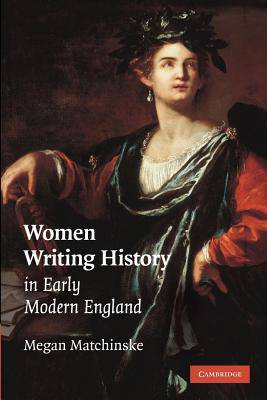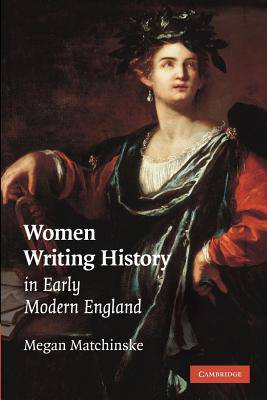
Bedankt voor het vertrouwen het afgelopen jaar! Om jou te bedanken bieden we GRATIS verzending (in België) aan op alles gedurende de hele maand januari.
- Afhalen na 1 uur in een winkel met voorraad
- In januari gratis thuislevering in België
- Ruim aanbod met 7 miljoen producten
Bedankt voor het vertrouwen het afgelopen jaar! Om jou te bedanken bieden we GRATIS verzending (in België) aan op alles gedurende de hele maand januari.
- Afhalen na 1 uur in een winkel met voorraad
- In januari gratis thuislevering in België
- Ruim aanbod met 7 miljoen producten
Zoeken
€ 64,95
+ 129 punten
Uitvoering
Omschrijving
In 1603 an English gentlewoman, Elizabeth Grymeston, composed for her young son a series of meditations - meditations that would offer posthumous advice and reflection on everything from the nature of sin to the limits of royal authority. Six months later Grymeston was dead and her words memorialized not just for a small boy but also for an English audience eager for moral edification and enlightenment. As one of the first writers of the mother's legacy to appear in England, Grymeston looked to history to find her answers. Using life experience as her witness, she drew immediate and powerful connections between yesterday's actions and tomorrow's possibilities. She was not alone - throughout the seventeenth century, scores of Englishwomen did likewise, exploring in their own 'histories' the shifting relationships between past and future. This book focuses on this dynamic exchange, asking us to look seriously at the ends of history.
Specificaties
Betrokkenen
- Auteur(s):
- Uitgeverij:
Inhoud
- Aantal bladzijden:
- 252
- Taal:
- Engels
Eigenschappen
- Productcode (EAN):
- 9781107406629
- Verschijningsdatum:
- 16/08/2012
- Uitvoering:
- Paperback
- Formaat:
- Trade paperback (VS)
- Afmetingen:
- 152 mm x 229 mm
- Gewicht:
- 340 g

Alleen bij Standaard Boekhandel
+ 129 punten op je klantenkaart van Standaard Boekhandel
Beoordelingen
We publiceren alleen reviews die voldoen aan de voorwaarden voor reviews. Bekijk onze voorwaarden voor reviews.









